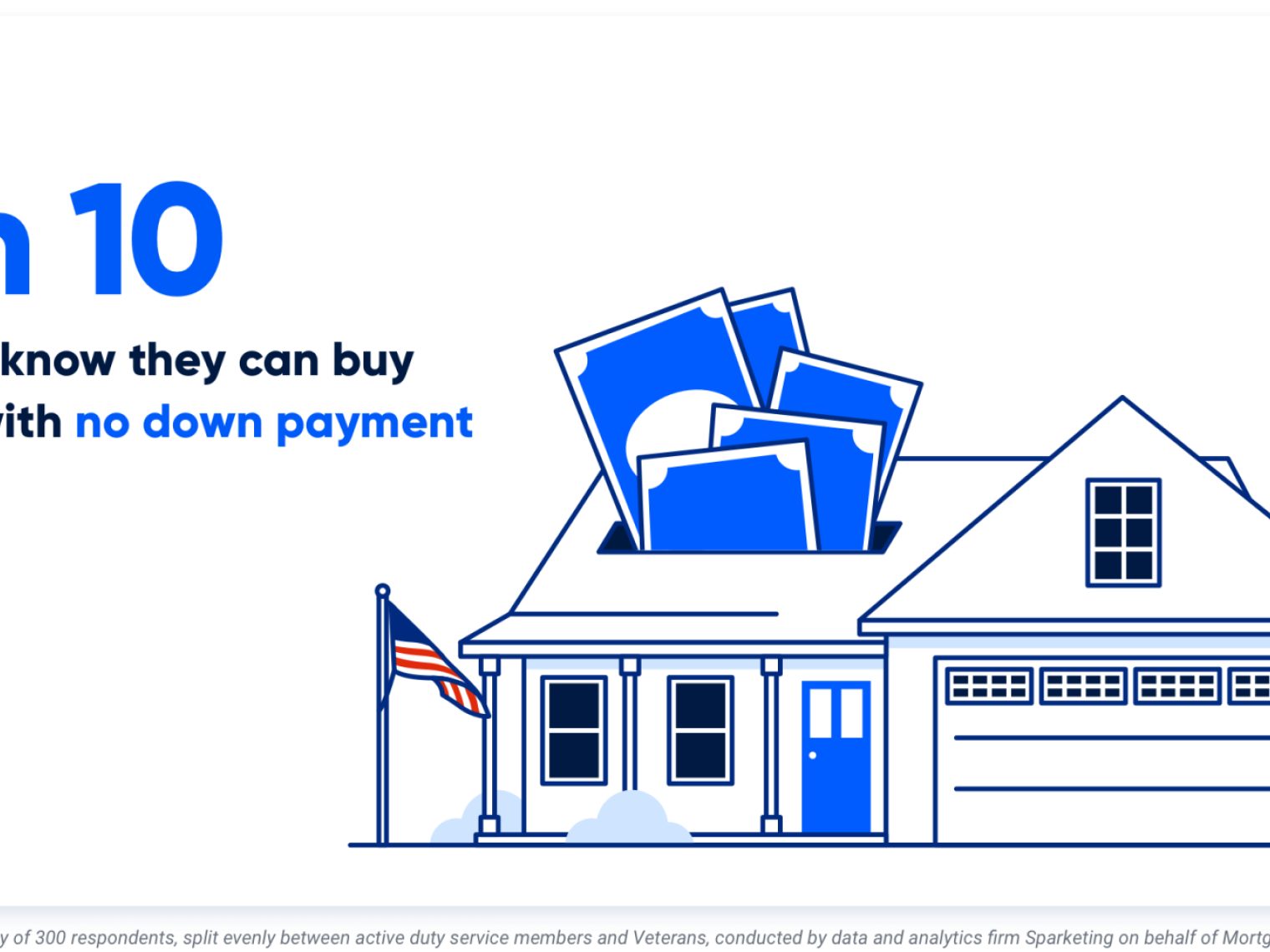When you're ready to make an offer, typically, the best way to show you're serious is by including earnest money. Below we detail what earnest money is, how to get it back, and what you need to know about contingency agreements.
An earnest money deposit is a deposit of good faith on a home loan from a buyer to a seller. Including an earnest money deposit with your offer is a part of the VA home loan process and serves to protect VA buyers and sellers in a real estate transaction. Learn how earnest money might help you obtain the home you want.
What is Earnest Money?
It’s a deposit of good faith on a home loan from buyer to seller. An earnest money deposit will set your offer apart from other applicants, and it's generally an accepted part of the VA loan process.
How Earnest Money is Used
Earnest money is paid at the time of your offer. Each state has very strict rules on how this deposit is managed until the transaction closes. Generally, these funds are held in an escrow account managed by the buyer’s real estate agent or the title company. The deposit is then applied to your closing costs or returned to you at closing.
A solid contract supplemented with an earnest money deposit shows a seller that you have both the resources and the desire to seal the deal. Including a considerable deposit could even help your offer be selected over others.
What Happens to Earnest Money at Closing?
Earnest money funds are usually applied to a loan’s closing costs or to the down payment. Since VA loans don’t require a down payment and closing costs are normally paid by the seller, many VA loan recipients end up putting that money toward closing costs and prepaid items or even getting it all back.
Keep in mind that as a buyer, you want to gain as many seller concessions as possible from the seller. The best way to start any relationship is with a showing of goodwill. An ample deposit serves this purpose, and places buyers in a great position to negotiate more favorable contract terms.
What Happens to Earnest Money if the Buyer Backs Out?
Buyers stand to lose their earnest money if they back out of a real estate transaction. Earnest money gives sellers monetary assurance that a buyer won’t back out of the contract without valid cause.
How Much Earnest Money Should I Put Down?
The earnest money amount will vary according to your area, seller, and price of the home you're considering. The best way to determine local customs is to talk to an experienced real estate agent. Your earnest money deposit could range anywhere from 1-3 percent for an existing home to 10 percent for new construction. It depends on the specific property, the competitiveness of the market, and other market-specific factors. For example, on a $300,000 property, you may put down $3,000. For new construction, as much as 10 percent can be required, which would come out to $30,000 in this case.
A competitive market might mean you’ll need to put down more money. Most agents agree that buyers should include an earnest money amount that will be taken seriously, but not so much that a buyer’s finances are at risk. It’s unlikely that you’ll lose your earnest money deposit, but it’s important to protect yourself.
Consider the following when asking how much to put down:
- The state of the local and national housing market.
- How quickly you can close the deal.
- How eager is the seller?
- If you're making an offer without any competition, put down about 1% of the offering price on the home.
- If you're making an offer and know other people are looking at the home, consider putting down roughly 1-5%.
- A flat fee ranging from $500 to $2000 might be acceptable depending on the home.
Is My Earnest Money Deposit Refundable?
The terms of the contract decide where earnest money lands if the contract is broken. Most contracts have contingencies that allow buyers to walk away from a home should something unexpected come up. For example, let’s say that a buyer’s contract has made the final purchase contingent on the results of an inspection. If the inspection reveals problems that are unacceptable to the buyer, the buyer can walk away from the home with their earnest money in tow. If the buyer backs out just due to a change of heart, the earnest money deposit will be transferred to the seller. Be sure to watch the expiration date on contingencies, as it can impact the return of funds.
Appraisal Contingency
VA loans automatically protect a buyer's earnest money in the event the appraised value comes in below the purchase offer. This protection is a part of every VA purchase loan.
Inspection Contingency
Contingency on inspection allows you to walk away from a home with your earnest money if the inspection reveals unsatisfactory housing conditions.
Financing Contingency
Financing contingency assures that you receive an earnest money refund if you don’t receive proper financing in time.
Selling Contingency
If you’re unable to sell your house before closing on your new home, selling contingency lets you walk away with your earnest money. Many sellers aren't fans of this contingency, given the unpredictable nature of real estate.
Scenarios Where Earnest Money Will be Refunded
Remember, you're not throwing this money down a bottomless pit--it's going to be put in an escrow account for later use. You’re also protected by the contingencies you choose to put in place. Make sure to work with a reputable, experienced real estate agent when crafting your offer. A good contract with proper contingencies is essential in protecting your earnest money deposit.
Around closing time, you should discuss with your home loan expert if the money should be put towards closing costs or if you will be receiving a refund of all or a portion of the earnest money. The VA seriously limits what Veteran borrowers pay in closing costs, so you might be getting a full refund. Either way, the money is there.
Do VA Loans Require Earnest Money?
VA loans do not require an earnest money deposit, but some sellers may request it. It can be advantageous to offer an earnest money deposit as it shows sellers you are serious about moving forward with the property.
Still have questions about earnest money or the VA loan in general? You can talk with a loan expert at Veterans United, a VA lender, at 855-870-8845.
Answer a few questions below to speak with a specialist about what your military service has earned you.
Related Posts
-
 VA Loan Down Payment RequirementsVA loans have no down payment requirements as long as the Veteran has full entitlement, but only 3-in-10 Veterans know they can buy a home loan with zero down payment. Here’s what Veterans need to know about VA loan down payment requirements.
VA Loan Down Payment RequirementsVA loans have no down payment requirements as long as the Veteran has full entitlement, but only 3-in-10 Veterans know they can buy a home loan with zero down payment. Here’s what Veterans need to know about VA loan down payment requirements. -
 5 Most Common VA Loan Myths BustedVA loan myths confuse and deter many VA loan borrowers. Here we debunk 5 of the most common VA loan myths so that you can borrow with confidence.
5 Most Common VA Loan Myths BustedVA loan myths confuse and deter many VA loan borrowers. Here we debunk 5 of the most common VA loan myths so that you can borrow with confidence.


